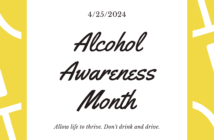by Adriana Rodriguez, Contributing Writer
Minimum age limitations are a set of restrictions that vary according to laws, ethics, customs, etc. Some of the more commonly known age constraints in the U.S. pertain to labor laws (14), the age of majority (18), and the age to legally purchase and consume alcohol (21).
Minimum age requirements are often put in place by the federal government to support proper physical and mental development in “minors” (those under 18 years of age), protect them from exploitation, and prevent destructive, habitual behavior.
Although many of these limitations are enacted by the federal government and apply to every state, there still exist differences in minimum age limitations due to discrepancies in state laws.
For example, the age of consent in Florida is 18, while in Georgia, it is 16. These states are very close in proximity, yet they still enforce laws with different age restrictions. 9
Why the difference in the age laws?
In short, the U.S. runs under a federalist government, a structure that has divided the power between the state government and the central government since the nation’s founding. Despite having a common ground in the central government regarding federal laws, individual states are still able to apply their preferred legislation.
“Basically, the idea is that different states can make their own different rules about things as they see fit,” says Frank Orlando, M.A. Political Science.
The minimum legal drinking age (MLDA) of 21, however, was set by the federal government in 1984. While many support the age restrictions in the U.S. as they are currently set, others argue against them due to their semi-contradicting nature.
“I believe the alcohol age should be lowered to at least 19, because the age limit to join the military is 18. If one is old enough to serve in the military and potentially die, why shouldn’t they be old enough to drink as well?” says Alanis Harrison, a sophomore at Saint Leo University majoring in English Professional Writing.
According to the consumer.ftc.gov official website, many states lowered the MLDA after Prohibition and between 1970-1975 in response to a change in legal voting age. Unfortunately, this lowered standard resulted in an increase in youth car crashes and general confusion when people began to drive under the influence across state lines with different MLDA laws.
The CDC reports that states that raised the MLDA to 21 have seen a 61% median decline in motor vehicle crashes. Evidence also supports that the increased MLDA helps prevents drinkers from developing alcohol and other drug dependencies, adverse birth outcomes, and suicides and homicides.
Another counterargument against the current age limitations pertain to the idea that people may develop at different rates and at different ages.
However, Orlando says that the main purpose of the minimum age limitations is more general rather than individualistic. He explains that even when individual exceptions are made, there still exists age restrictions for these individuals.
“Even when you emancipate yourself from your parents, that would still not change, for example, age of consent. It would not change drinking age,” says Orlando.
Other reasons for age restrictions relate to cultural preferences. Despite sharing an American, or Western, culture, different states are known to have different perceptions and practices, which can sometimes be referred to as “rites of passage.”
These rites are a set of steps that a person must undergo at specific ages throughout their life according to gender, ethnicity, religion, etc.
“I think that it’s probably just related to, in some ways, traditions in these states,” says Orlando.
While widely diverse in practices, these rites and traditions can also contain similarities in purpose at a national level. Some examples include school graduations, weddings, and funerals.
Whether or not one agrees with the current minimum age limitations in the U.S., it does not change the fact that these age laws are difficult to enforce upon the public.
Orlando points out that minors are still capable of drinking in settings like parties and clubs. He also points out how the illegality of it may be what attracts and tempts so many to partake in such actions.
“Perhaps by making it difficult to drink, you’re encouraging people drinking in dangerous contexts – maybe binge-drinking or at parties where no one is around, instead of in a more healthy way like at a restaurant or a bar where there are people there,” says Orlando.
In the end, the age restrictions become a more personal responsibility. The public is entrusted to not only practice self-discipline, but to also hold others accountable by stopping and reporting those who fail to comply with the law.
“Any piece of public policy has positives and negatives. It’s just, are you willing to pay the cost for these negatives with the benefits? [Does] the benefit outweigh the cost?” Orlando concluded.
These are questions that one must ask themselves before attempting to change our society.





